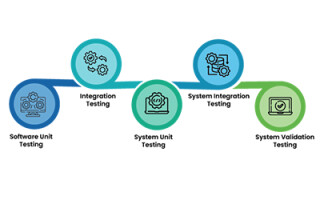Advancing tools for SoC designers
March 01, 2008

News from the SPIRIT Consortium, Open Core Protocol International Partnership (OCP-IP), and the Open SystemC Initiative (OSCI).
This month's issue starts a new column featuring industry consortia. These are organizations that influence the technology featured in the current issue. Each month we will spotlight consortia that touch on some facet of the topics covered in the magazine.
SPIRIT Consortium
The SPIRIT Consortium (www.spiritconsortium.org) is a nonprofit global organization focused on establishing multifaceted IP/tool integration standards that drive sustainable growth in electronic design. The consortium is comprised of companies dedicated to adopting a unified set of specifications for configuring, integrating, and verifying IP in advanced System-on-Chip (SoC) design tool sets. Members include leading electronic design automation, IP, system integration, and semiconductor companies.
Last March, the SPIRIT Consortium introduced IP-XACT 1.4 with two key features added to the specification: support for IP using transactional modeling styles and a new tight generator interface. The IP-XACT specification, an XML data book, documents different aspects of IP modules, enabling designers using IP-XACT tools to automatically create unique expressions of a design in a consistent and correlated way. Design and verification engineers will benefit from using this available specification through IP processing automation.
IP-XACT specifications keep record of the interface on an IP, including ad hoc connection identification, interfaces to standard buses, and custom buses, allowing the system design and verification tools processing the IP to automatically recognize integration requirements. The specifications also document hardware and software design views as well as register and memory map information.
Open Core Protocol International Partnership (OCP-IP)
OCP-IP (www.ocpip.org) is dedicated to proliferating a common standard for IP core interfaces or sockets that facilitate plug-and-play SoC designs. On January 8, OCP-IP announced that a new debug specification detailing an approach to a standardized OCP bus-compliant debug interface had moved to member review. The debug solution, an optional OCP port, implements a debug interface socket that can be added to all cores and IP blocks.
The specification supports a uniform method of on-chip system analysis and access to embedded information at the core, multicore, and system levels. The debug interface socket defines several layers of extended functionality to address increasing debug needs for software, hardware, and mixed SoC prototyping. It is intended to be compatible with other industry standards efforts that deal with debug and related on-chip issues.
An overall debugging framework serves as the basis of the OCP debug interface. In the same way that the OCP data framework is a functional superset for various bus interfaces and data structures, the OCP debug framework defines an OCP debug interface socket that can connect to a superset of debug solutions, including those developed outside of OCP-IP. The specification loosely defines requirements and a set of debug signals at the OCP socket and fabric levels, leaving most specific implementation options open to IP and tools vendors.
Open SystemC Initiative (OSCI)
OSCI (www.systemc.org) is an independent, nonprofit organization dedicated to supporting and advancing SystemC as an industry-standard language for electronic system-level designs. The group declared on February 19 that more than 1,400 users from around the world have downloaded its new draft standard for Transaction-Level Modeling (TLM).
The OSCI TLM-2 Draft 2 kit responds to users’ requests by significantly expanding the scope of TLM-1. The new draft standard increases tool interoperability for virtual platforms containing memory-mapped buses and on-chip communication networks. It also provides the essential framework needed for model exchange within companies and across the IP supply chain. Public review of the TLM-2 Draft 2 kit was completed January 31, and feedback from the SystemC community has been positive thus far.
TLM-2 improvement suggestions received during the public comment period will be diligently reviewed by the OSCI TLM Working Group, which will make further refinements to the standard as it advances toward a final TLM kit later this year. The TLM-2 Draft 2 kit is available under open source license and includes a requirements specification, documentation, library, and examples.




